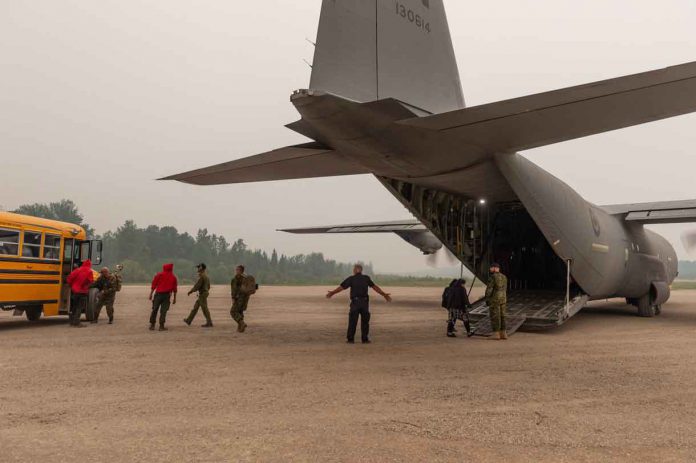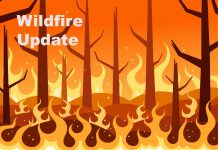Thunder Bay – NEWS – Nishnawbe Aski Nation (NAN) Grand Chief Alvin Fiddler has called for the Ontario government to declare a State of Emergency to trigger an immediate response to assist remote First Nations communities threatened by forest fires raging across northern Ontario.
“This situation is worsening by the hour. Three of our communities have been forced to evacuate, and if fire conditions and behaviour continue on current course the potential for full scale evacuations of several communities is a reality. This is quickly becoming a NAN-wide emergency and requires an immediate, coordinated response,” says Grand Chief Alvin Fiddler.
“The City of Thunder Bay took quick action declaring a State of Emergency over the weekend that has allowed them to accommodate some of the evacuees from our communities, and we are grateful. It is time for the province to do the same so the appropriate personnel, equipment and supports can be mobilized before this situation becomes worse. Lives are at stake, there is no time to waste.”
A few hundred residents from the communities of Poplar Hill, Deer Lake and Pikangikum have been evacuated since the weekend, with more than 5,000 residents of these communities still to be evacuated.
The communities of Bearskin Lake, Sachigo Lake and North Spirit Lake are on high alert for potential evacuation.
NAN says that the declaration of a State of Emergency is needed to activate a full response from all provincial agencies and organizations including aircraft and watercraft for evacuation and temporary relocation, members of the military for safety, and additional capacity for accommodating evacuees in host communities.
There are currently more than 60 forest fires across northwestern Ontario, many of which are within kilometres of NAN First Nations whose only means of transportation is by air or water to safer locations. Fire and smoke are threatening community safety, and poor air quality is affecting the sick and elderly.
Many evacuees have now arrived in Thunder Bay, which will serve as a host community and one of three transportation hubs across northern Ontario to move evacuees to other host communities across the province.







